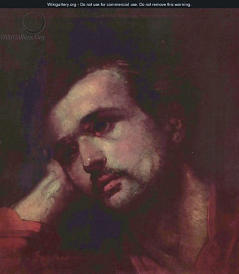
“He who gives an answer before he hears, it is folly and shame to him” (Proverbs 18:13).
The Penalty of the Thoughtful Man
Barbara
Tuchman
said
of
Arthur
James
Balfour,
the
British
prime
minister
(1902-05),
in
her
book,
The
Proud
Tower
,
“Balfour
did,
in
fact,
hold
certain
basic
convictions,
but
he
could
see
arguments on both sides of a matter, which is the penalty of the thoughtful man.”
Not
everything
is
black
and
white.
Truth
and
falsehood
are
not
always
immediately
distinguishable.
Good
arguments
can
sometimes
be
made
both
for,
and
against,
a
proposal,
and
it
might
require
long,
careful,
and
even
painful
deliberation,
and
an
earnest
weighing
of
each
side’s
defense,
to
determine
the
truth.
It
is
the
thoughtful
man
who
will
honestly
ponder
the
pros
and
cons
of
a
proposition
and
take
all
the
time
he
needs
to
discover
the
correct
course.
The interests of truth benefit from thoughtfulness. Rash, prejudicial decisions favor falsehood.
Yet,
Barbara
Tuchman
offers
an
arresting
idea
when
she
calls
thoughtfulness
a
“penalty.”
How
could
thoughtfulness,
ordinarily
a
virtue,
be
a
punishment?
The
answer
to
this
question
requires
the
realization
that
the
average
person
values
his
own
peace
and
pleasure
more
highly
than
he
does
the
truth.
Truth
or
reality
can
be
very
painful.
It
can
be
awfully
threatening
to
a
person’s
carefully
crafted
conception
of
himself
and
his
world.
Moreover,
others
who
do
not
appreciate
truth
or
the
thoughtfulness
necessary
to
see
it
effectively
“penalize”
him
by
equating
his
thoughtfulness
with
indecisiveness
or
a
desire
to
satisfy
everyone,
and,
adding
to
the confusion, is the fact that, sometimes, this is exactly what it is.
The
solution
to
this
dilemma
is
actually
a
very
simple
and
common
one:
to
exchange
truth
for
fantasy
.
If
a
person
ever
allows
himself
to
see
“the
other
side,”
or
to
think
too
long
and
deeply
on
the
truth,
he
runs
the
risk
of
discovering
it.
Then,
it
might
confront
him
with
a
very
hard
choice
between
the
conception
of
himself
as
a
good,
honest
person
and
the
pleasant
life
his
delusion
gave
him.
In
other
words,
there
might
be
a
heavy
“penalty”
to
pay.
So,
if
he
wishes
to
accommodate
himself
and
others
and
maintain
himself
in
his
comfort
zone,
he
can
ill
afford
to
be
a
“thoughtful”
man.
Instead,
he
opts
for
a
comfortable
self-delusion
which
is
possible
only
as
long
as
he
avoids
the
truth,
and
to
do
this,
he
must
not
allow
himself
to
be
too
thoughtful.
Thus,
a
rush
to
judgment
or
resistance
to
arguments
contrary
to
the
position
a
person
holds
can
be
a
way
of
protecting
himself.
He
must
shield
himself
from
the
truth
and
anything
which
might
reveal
it.
He
often
accomplishes
this
simply
by
giving
the
truth
very
little
thought.
In
this
way,
he
can
actually
maintain
his
adherence
to
false
ideas
and
teachings
without
compromising
his
supposed
integrity.
He
is
not
conscious
of
any
conflict
between
what
he
believes
and
the
truth
because
he
does
not
allow
his
mind
to
entertain
other
possibilities
or
contemplate any weaknesses in his position or the strengths of the opposite one.
This
process
is
not
unknown
to
the
Bible.
It
speaks
of
the
one
who
turns
away
his
ear
from
hearing
the
law
(Prov.
28:9).
The
Jewish
council,
when
confronted
with
the
intolerable
realities
expressed
by
Stephen,
actually
“covered
their
ears”
(Acts
7:57).
On
the
other
hand,
Jesus spoke of the willingness required to know whether His teaching was of God (Jn. 7:17).
It
is
easy
to
refuse
and
refute
the
truth
if
one
never
allows
himself
to
hear
it
or
think
honestly
about
it.
The
person
who
would
be
thoughtful
enough
to
seek,
cherish,
and
know
the
truth
must
be
willing
to
“pay
the
penalty”
for
it.
He
must
have
the
love
of
truth
and
courage
necessary
to
bear
the
burden
of
the
intense
pressures
brought
on
him
by
what
he
considers
his
own
self-interests
and
those
of
the
people
with
whom
he
wishes
to
be
identified.
This
is
why
Jesus
spoke
of
His
disciple
as
having
“an
honest
and
good
heart”
(Lk.
8:15).
While
“truth
has
nothing
to
fear
from
honest
investigation,”
the
honest
man
certainly
does
—
though
just
for
now.









Copyright © 2017 - current year, Gary P. and Leslie G. Eubanks. All Rights Reserved.

“He who gives an answer before he hears, it is folly and shame
to him” (Proverbs 18:13).
The Penalty of the Thoughtful Man
Barbara
Tuchman
said
of
Arthur
James
Balfour,
the
British
prime
minister
(1902-05),
in
her
book,
The
Proud
Tower
,
“Balfour
did,
in
fact,
hold
certain
basic
convictions,
but
he
could
see
arguments
on
both
sides
of
a
matter,
which
is
the
penalty
of
the
thoughtful
man.”
Not
everything
is
black
and
white.
Truth
and
falsehood
are
not
always
immediately
distinguishable.
Good
arguments
can
sometimes
be
made
both
for,
and
against,
a
proposal,
and
it
might
require
long,
careful,
and
even
painful
deliberation,
and
an
earnest
weighing
of
each
side’s
defense,
to
determine
the
truth.
It
is
the
thoughtful
man
who
will
honestly
ponder
the
pros
and
cons
of
a
proposition
and
take
all
the
time
he
needs
to
discover
the
correct
course.
The
interests
of
truth
benefit
from
thoughtfulness.
Rash,
prejudicial decisions favor falsehood.
Yet,
Barbara
Tuchman
offers
an
arresting
idea
when
she
calls
thoughtfulness
a
“penalty.”
How
could
thoughtfulness,
ordinarily
a
virtue,
be
a
punishment?
The
answer
to
this
question
requires
the
realization
that
the
average
person
values
his
own
peace
and
pleasure
more
highly
than
he
does
the
truth.
Truth
or
reality
can
be
very
painful.
It
can
be
awfully
threatening
to
a
person’s
carefully
crafted
conception
of
himself
and
his
world.
Moreover,
others
who
do
not
appreciate
truth
or
the
thoughtfulness
necessary
to
see
it
effectively
“penalize”
him
by
equating
his
thoughtfulness
with
indecisiveness
or
a
desire
to
satisfy
everyone,
and,
adding
to
the
confusion,
is
the
fact
that,
sometimes,
this
is
exactly what it is.
The
solution
to
this
dilemma
is
actually
a
very
simple
and
common
one:
to
exchange
truth
for
fantasy
.
If
a
person
ever
allows
himself
to
see
“the
other
side,”
or
to
think
too
long
and
deeply
on
the
truth,
he
runs
the
risk
of
discovering
it.
Then,
it
might
confront
him
with
a
very
hard
choice
between
the
conception
of
himself
as
a
good,
honest
person
and
the
pleasant
life
his
delusion
gave
him.
In
other
words,
there
might
be
a
heavy
“penalty”
to
pay.
So,
if
he
wishes
to
accommodate
himself
and
others
and
maintain
himself
in
his
comfort
zone,
he
can
ill
afford
to
be
a
“thoughtful”
man.
Instead,
he
opts
for
a
comfortable
self-delusion
which
is
possible
only
as
long
as
he
avoids
the
truth,
and
to
do
this,
he
must
not allow himself to be too thoughtful.
Thus,
a
rush
to
judgment
or
resistance
to
arguments
contrary
to
the
position
a
person
holds
can
be
a
way
of
protecting
himself.
He
must
shield
himself
from
the
truth
and
anything
which
might
reveal
it.
He
often
accomplishes
this
simply
by
giving
the
truth
very
little
thought.
In
this
way,
he
can
actually
maintain
his
adherence
to
false
ideas
and
teachings
without
compromising
his
supposed
integrity.
He
is
not
conscious
of
any
conflict
between
what
he
believes
and
the
truth
because
he
does
not
allow
his
mind
to
entertain
other
possibilities
or
contemplate
any
weaknesses
in
his position or the strengths of the opposite one.
This
process
is
not
unknown
to
the
Bible.
It
speaks
of
the
one
who
turns
away
his
ear
from
hearing
the
law
(Prov.
28:9).
The
Jewish
council,
when
confronted
with
the
intolerable
realities
expressed
by
Stephen,
actually
“covered
their
ears”
(Acts
7:57).
On
the
other
hand,
Jesus
spoke
of
the
willingness
required
to
know
whether His teaching was of God (Jn. 7:17).
It
is
easy
to
refuse
and
refute
the
truth
if
one
never
allows
himself
to
hear
it
or
think
honestly
about
it.
The
person
who
would
be
thoughtful
enough
to
seek,
cherish,
and
know
the
truth
must
be
willing
to
“pay
the
penalty”
for
it.
He
must
have
the
love
of
truth
and
courage
necessary
to
bear
the
burden
of
the
intense
pressures
brought
on
him
by
what
he
considers
his
own
self-interests
and
those
of
the
people
with
whom
he
wishes
to
be
identified.
This
is
why
Jesus
spoke
of
His
disciple
as
having
“an
honest
and
good
heart”
(Lk.
8:15).
While
“truth
has
nothing
to
fear
from
honest
investigation,”
the
honest
man
certainly
does
—
though
just
for
now.








